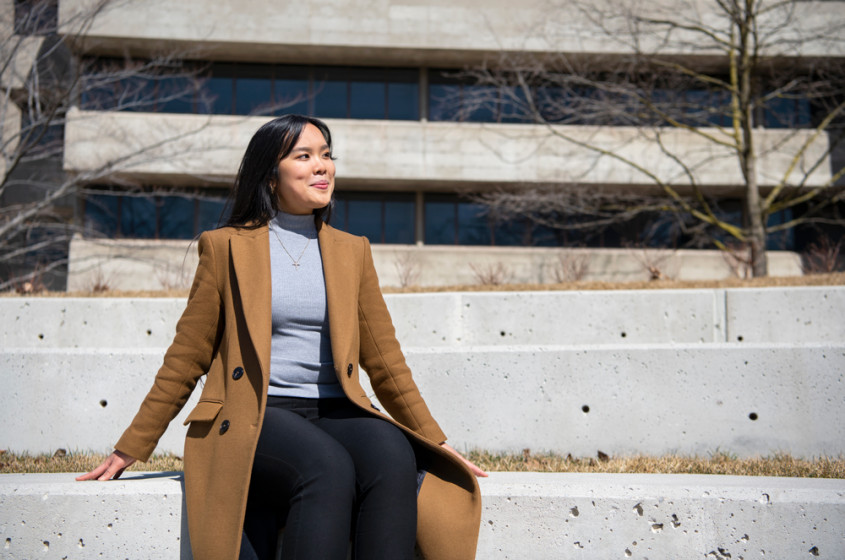Selina Quibrantar remembers sitting in her introduction to health studies course when the enormity of the challenge presented by food insecurity sunk in.
It also sparked something – a commitment to take action.
“Food connects us all. We all need it to survive,” says Quibrantar, a fourth-year human biology and population health student at U of T Scarborough.
“There are systemic social, economic and health issues related to food insecurity, but there’s also a human factor. What drew me is something my parents told me. They’re from the Philippines, a country with elevated food insecurity, and they reminded me that I’m extremely fortunate not to have to think twice about having breakfast. For many people, including kids in Toronto, that’s not always the case.”
That passion and motivation to tackle food insecurity globally and close to home helped Quibrantar earn the Work-Integrated Learning Student of the Year Award from Co-operative Education and Work-Integrated Learning Canada (CEWIL). The annual award recognizes outstanding co-op and work-integrated learning (WIL) achievements by college and university students across Canada.
Quibrantar completed her WIL experience at Black Creek Community Farm, an urban agricultural centre in Toronto’s Jane and Finch neighbourhood that provides healthy food, hands-on training and experience to diverse communities.

Work-Integrated Learning is a type of work experience where students get to apply their academic learning outside of the classroom. Quibrantar was attracted to Black Creek Community Farm because of their commitment to food justice issues, which tied to the content of the course (Global Health and Human Biology) connected to her WIL experience.
“Ward 7, where Jane and Finch is located, experiences high levels of food insecurity – there’s relatively few affordable grocery stores, and access to quality, fresh food is impossible for many. Part of the farm’s mandate is to grow and deliver fresh food to community members,” she says.
While at Black Creek Community Farm, Quibrantar and her group proposed a policy recommendation to alleviate food insecurity in Ward 7 called Good Eats, an education program for students covering nutrition, food literacy and food distribution inequities to empower them as they transition into adulthood. She also co-wrote a document that was used by the Toronto Food Policy Council, a municipal organization that works on emerging food issues and fosters innovation in food systems and policies across the city.
In addition to receiving the national WIL award, she also received the 2020 Education at Work Ontario (EWO) student of the year award.
“She truly deserves this award,” said Obidimma Ezezika, an assistant professor in the Department of Health and Society at U of T Scarborough who nominated Quibrantar for the WIL award.
“Selina is committed to the community partners related to our global classroom and work-integrated learning course, and I was pleased to nominate her for this award.”
Shortly after her placement, Quibrantar received a COVID-19 student engagement award, which allowed her to look at how the pandemic affected programming at Black Creek Community Farm. She continues to work alongside the farm, supporting their emergency food box program that serves more than 3,000 households in northwest Toronto with fresh fruits and vegetables.
Last semester, she completed a second WIL experience with the African Agricultural Technology Foundation where she helped develop a program called AgriLearn. The program teaches small-scale farmers in Nigeria about agricultural technology and provides them with vouchers for farming equipment, with the overall goal of increasing crop yield in the country.
As for the future, Quibrantar plans to pursue a master’s in public health and hopes to eventually be a public health physician.
Her advice to fellow students? Take on as many leadership roles as possible and take time to help others.
“There’s a misconception that students are future leaders, but I think we can all be leaders now. If you’re passionate about an issue and care about your community, you can achieve something positive.”
